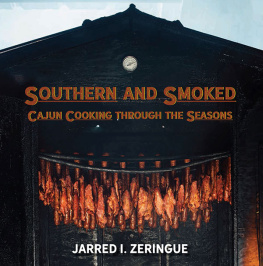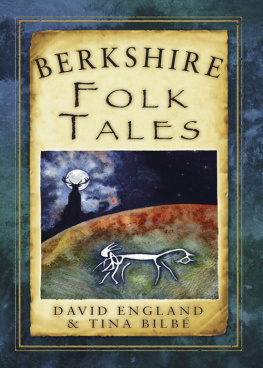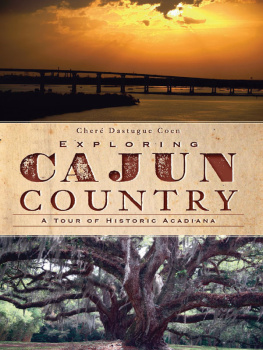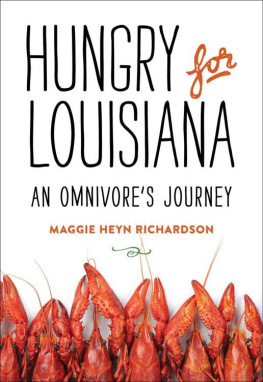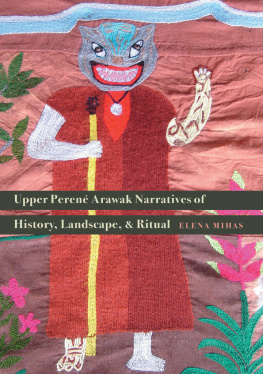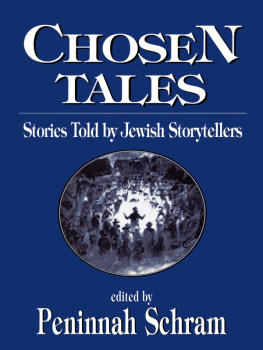Swapping Stories
Swapping Stories
FOLKTALES FROM LOUISIANA
Carl Lindahl, Maida Owens, and C. Rene Harvison
EDITORS


This publication is supported by a grant from the National Endowment
for the Arts, the Louisiana Division of the Arts, Office of Cultural
Development, Department of Culture, Recreation and Tourism.
Copyright 1997 by the Louisiana Division of the Arts
All rights reserved
Manufactured in the United States of America
00 99 98 97 4 3 2 1
The paper in this book meets the guidelines for permanence and
durability of the Committee on Production Guidelines for Book
Longevity of the Council on Library Resources.
Library of Congress Cataloging-in-Publication Data
Swapping stories: folktales from Louisiana / Carl Lindahl, Maida
Owens, and C. Rene Harvison, editors.
p. cm.
Includes bibliographical references and index.
ISBN 0-87805-930-X (cloth : alk. paper).ISBN 0-87805-931-8 (pbk. : alk. paper)
1. TalesLouisiana. 2. Oral traditionLouisiana. 3. LouisianaSocial life and customs. I. Lindahl, Carl, 1947- . II. Owens, Maida. III. Harvison, C. Rene.
GR110.L5S93 1997
398.209763dc20
96-41265
CIP
British Library Cataloging-in-Publication data available
Acknowledgments
Various collections and studies of Louisiana folktales have appeared since Alce Fortiers pioneering works were published a century ago. But all share the same limitation: restriction to a particular genre or to a single locale or ethnic group. It is time to build upon and to move beyond the work of such notable collectors as Fortier, Calvin Claudel, and Corinne Saucier to create a more inclusive picture of Louisiana storytelling.
This project could not have been accomplished without the assistance of many folklorists from Louisiana and elsewhere. They are to be commended for realizing that good stories are valuable. Thanks to all the folklorists and community members who either shared their personal collections or assisted with fieldwork of some kind: Dr. Barry Jean Ancelet, University of Southwestern Louisiana in Lafayette, for his work with Cajun and Creole storytellers (in particular for this project Creole raconteur Wilson Ben Guin Mitchell) and for his assistance in transcribing or translating French stories; Dr. Samuel G. Armistead, for contributing and annotating Isleo texts; Dr. Harry Becnel, whose collecting efforts with Italians in Livingston Parish are archived with the Center for Regional Studies at Southeastern Louisiana University; Debra Anderson Forney, for her work in contributing and interpreting the tales of her father, Alfred Anderson; Dr. H. F. Pete Gregory, Northwestern State University for his expertise concerning Native American storytellers, particularly Bel Abbey; Dr. Donald W. Hatley, Louisiana Folklife Center at Northwestern State University in Natchitoches, and Dr. Nicholas R. Spitzer for their work with African-American Clifford Blake, Sr.; Annette Huval, folklorist, for her work with Cajun and Creole storytellers, especially Enola Matthews; Dr. Geoffery Kimball, a linguist at Tulane University, for his work with Koasati tribal leader Bel Abbey; Pat Mire, filmmaker and community scholar, for his work with Bel Abbey; Dr. Susan Roach, Louisiana Tech University in Ruston, for her work with Harold Talbert, David Allen, and Lonnie Gray; and Fran Slaton, folklorist, for her work with the Vietnamese community. Other folklorists who provided guidance and encouragement are Dr. Eric Montenyohl, University of Southwestern Louisiana; Ben Sandmel, researcher and writer; and Dr. Carolyn Ware, 1989-91 Louisiana Folklife Festival programming coordinator.
Partly responsible for the breadth of storytelling represented herein is the extensive narrative collection that resulted from Louisiana Open House 1990. We thank Charlie Fisher, Bruce Morgan, and Myra Peak of the Office of Tourism for their vision; and Judith Barrow, Debi Bennett, Ellen Blue, Monty Brown, Cordelia Cale, Susan Eddington, Randall LaBry, Dayna Lee, Pat Mire, and Norris Rousse for their hard work and commitment to the project goals. We also applaud the local coordinators who invited storytellers to participate, those who moderated narrative stage sessions, and others who worked with the program. Together, they provided communities throughout Louisiana the opportunity to present local folk storytellers and to share their culture with visitors and friends alike.
We would like to thank the National Endowment for the Arts Folk Arts Program for the support that made the Louisiana Storytelling Project possible. This project was also funded in part by the Louisiana State Arts Council and the Louisiana Division of the Arts, Office of Cultural Development, Department of Culture, Recreation, and Tourism. Support services were provided by the Division of the Arts staff. Dr. Frank de Caro, Mary Anne Sternberg, Dr. Carl Brasseaux, Dr. H. F. Pete Gregory, Dr. Donald W. Hatley, and Dr. Susan Roach provided comments while the manuscript was being developed. Dr. Denise Wenner and Dr. Lee Winnifred of the University of Houston performed meticulous and artful editorial work.
The article on the peoples of Louisiana by Maida Owens draws on the work of many people. Susan Roach, Barry Ancelet, Michael Smith, H. F. Pete Gregory, Donald W. Hatley, Carl Brasseaux, Pam Breaux, Joyce Jackson, and James Borders assisted by reading drafts, and many more provided information through their research.
Finally, due credit should go to the books true composers, the numerous storytellers from whom hundreds of narratives were collected. These people opened their hearts and jogged their memories and told their stories to our willing ears. For their generosity, we are truly grateful. Regrettably, four of the featured storytellersBel Abbey, Alfred Anderson, Lonnie Gray, and Wilson Ben Guin Mitchellpassed away before publication. In addition, Alex Bartus, Clifford Blake, Sr., Eck Bozeman, John T. Campbell, Clarence Broussard, Mary Gray, J. Maxwell Kelley, James B. Rider, and John Verret have died since their stories were recorded. At least their artistry was documented before their deaths.
With so many involved in this project, it was not possible to create a system for sharing the profit from book sales. Consequently, proceeds will be used to support folklife research through the Louisiana Folklife Program. However, the genuine reward of this team effortthe storiesare here for all to enjoy. We hope that reading them will bring almost as much pleasure as hearing the tellers themselves personally swapping stories.
The Louisiana Storytelling Project
Maida Owens
To promote understanding of Louisianas traditional cultures, the Louisiana Folklife Program within the states Division of the Arts strives to assist cultural specialists in public presentation of their findings by means of various formats appropriate to their subjects. These include publications, concerts, recordings, festivals, videotapes, and exhibits. The Louisiana Storytelling Project is one such project. The Folklife Program also tries to focus attention upon neglected cultures and folklife genres. A special concern is to assist communities with identifying their cultural resources and determining the most culturally appropriate means to support or use these resources. The ultimate goal is self-determination, which will be accomplished by providing each group the appropriate and specific tools necessary for the presentation and support of its own cultural resources. The Division of the Arts grants program is one resource available to communities to assist them in this process of self-empowerment.
Next page

